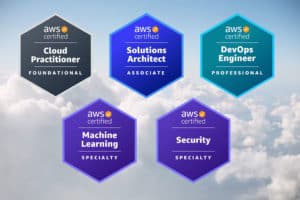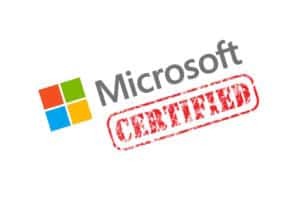You’ve aced every job so far and your resume is as polished as a new penny, but you’re still eyeing that corner office that seems just out of reach. Wondering if Project Management Professional (PMP) certification is the golden ticket to your next promotion?
In this post, we’re going to give you the lowdown on how PMP can potentially drive your career forward.
Quick Takeaways:
- Attaining PMP certification can lead to up to a 20% higher salary, distinguishing you as a top-tier project management professional.
- The PMP credential enhances job market visibility, equipping you with a global project management language and an edge in competitive environments.
- PMP is not just a certificate; it’s an investment in continuous professional development, encouraging ongoing learning and active participation in the PM community.
Is PMP Really Worth It?
When it comes to the Project Management Professional (PMP) certification, there’s a palpable buzz in the corporate hive. But is it the honey that makes your career sweeter? In essence, PMP certification, administered by the Project Management Institute (PMI), is a globally recognized credential that demonstrates your ability to manage projects and teams effectively.
So, let’s cut to the chase. The PMP credential arms you with a suite of tools and methodologies that are the bread and butter of project management. It’s not just a fancy badge for your resume but a testament to your understanding of rigorous project management practices. At the end of the day, it comes down to credibility and communication—two cornerstones of successful project management that PMP certification helps you to build.
Businesses in various industries acknowledge the PMP as gold-standard proof of your skills. Having it on your profile places you on a pedestal in the eyes of potential employers. You’re not just saying you know your stuff; you’ve got the bona fides to back it up.
Taking the plunge to become PMP certified is a commitment of both time and money. The exam isn’t a walk in the park, and the hours you’ll need for studying and experience can be daunting. But, let’s look at the bigger picture: you’re investing in a robust career that can weather the storms of a turbulent job market. And that’s worth its weight in gold.
Can PMP Certification Boost My Earnings?
Let’s talk turkey about what everyone really wants to know: Show me the money! According to PMI’s Earning Power Salary Survey, those flashing their PMP credentials can outearn their non-credentialed peers by a substantial margin—up to 20% more in certain countries!
This bump in the bank isn’t just a fluke. A PMP certification gives you the leverage to negotiate a higher salary because it showcases your expertise and dedication to the craft. Employers are willing to pay top dollar for professionals who bring the promise of superior project management to the table.
Now, while not every PMP-certified project manager is driving a luxury car, it’s clear that on average, holding the certification opens doors to better-compensated opportunities. The confidence it instills in you can also be a game-changer during salary negotiations. It’s not just about what you earn, but also about the return on investment for your career.
How Does PMP Stand Out in the Job Market?
In a sea of resumes, the PMP certification is a lighthouse for recruiters. It’s akin to a Swiss Army knife in your job-search toolkit—versatile and hugely respected. What sets PMP holders apart isn’t just their ability to manage projects; it’s the universal language of project management they speak, which resonates with organizations all around the globe.
With a PMP certification, your resume doesn’t just whisper; it speaks volumes. It says you’re serious about your career, you’ve mastered the skills necessary to excel in your field, and you’re ready to handle the Titanic-sized projects that would have others running for the lifeboats.
But here’s a nugget of wisdom that’s often overlooked: Networking within the PMI community can catapult your career prospects. By mingling with other PMP-certified professionals, you can tap into a wellspring of opportunities that might otherwise remain hidden. PMI chapters and events can be fertile ground for advancing your career, and they’re an indispensable aspect of holding a PMP certification.
In a nutshell, the PMP certification is far more than an accessory on your professional outfit. It’s the engine that powers your career growth, propels you into new earning strata, and gives you the edge in a competitive job market. Wrapping up, the question isn’t so much whether PMP will help your career, but how far you’re willing to let it take you. Buckle up, because with PMP, the sky’s the limit.
Will PMP Certification Expand My Professional Network?
Landing a Project Management Professional (PMP)® certification isn’t just a boost to your resume; it’s like getting VIP access to a club of professionals who are the crème de la crème of project management. It’s a golden ticket to an exclusive network that you might not otherwise have a chance to rub shoulders with.
Let’s delve into how the PMP can swing open doors to networking opportunities: – Conferences: As a PMP, you’ll likely find yourself at industry conferences, workshops, and seminars. These are breeding grounds for professional connections, mentors, and perhaps your next career move. – Local PMI chapters: PMI has chapters all over the globe that hold regular meet-ups, training sessions, and networking events. Being active in your local chapter puts you in the same room with folks who speak your language – project management. – Online communities: PMI offers various online communities and forums where PMPs can share knowledge, ask questions, and stay connected. These platforms are great for bouncing ideas off peers or finding solutions to shared challenges.
Here’s the kicker: Having the PMP designation is like a secret handshake. It instantly creates a bond with other credential holders because you’ve all been through the same rigorous process. This shared experience not only breaks the ice but can lead to lasting career alliances.
What Skills Will I Gain with PMP Certification?
Roll up your sleeves, because we’re talking about real, practical skills that can transform the way you manage projects. PMP certification isn’t just a pretty line on your CV; it’s a toolkit packed with essentials for the trenches of project management.
Let’s break down some of those skills: – Risk management: You’ll learn to sniff out potential issues before they become full-blown problems, and how to put plans in place to mitigate them. – Cost management: Keeping a tight rein on budgets is part art, part science. PMP training hones your ability to make each dollar work hard. – Schedule development: It’s all about timing. You’ll get better at estimating how long tasks will take and scheduling them for maximum efficiency. – Leadership: Project management is a team sport, and you’re the coach. PMP equips you with leadership techniques to inspire your team and clear hurdles together. – Agile methodologies: You’ll gain an understanding of Agile principles and practices, which are becoming more prevalent across various industries.
One super important skill that tends to fly under the radar? Communication. Sure, it’s not flashy, but the ability to articulate complex project details in simple terms is crucial, and PMP training is big on this.
Moreover, since project management principles are not industry-specific, the skills you pick up are transferable, from construction to IT to healthcare and beyond.
How Do I Maintain My PMP Certification, and Does It Encourage Continuous Learning?
Staying PMP certified means committing to ongoing education – it’s not a one-and-done deal. You’re expected to earn a specific number of Professional Development Units (PDUs) every three years to maintain your credential.
Here’s what you need to know to stay on top: – Earn 60 PDUs every three years to keep your PMP certification polished and up-to-date. – Balance is key: You’ll need at least 35 PDUs from educational activities, with the rest coming from professional experience.
This framework is designed to keep you at the forefront of the field, constantly learning and improving. It also creates a structured path for self-improvement and career advancement.
An often overlooked aspect of maintaining your PMP is the encouragement to not just be a consumer of knowledge but a contributor. Giving back through mentoring or speaking at events not only earns you PDUs but also solidifies your status as a thought leader in the community.
In summary, the PMP certification is not just an accolade to hang on the wall; it’s a commitment to professional excellence. It opens doors, teaches you to handle the tools of the trade with finesse, and keeps you on your toes with continuous learning. Stick with it, and you’ll likely see a significant return on your investment in terms of career opportunities, salary potential, and professional satisfaction.



![When to Ask for a Raise and How Much to Ask For? [Guide] planning budget writing expenses in notebook](https://howmonk.com/wp-content/uploads/2022/04/planning-budget-writing-expenses-in-notebook-300x200.jpg)




